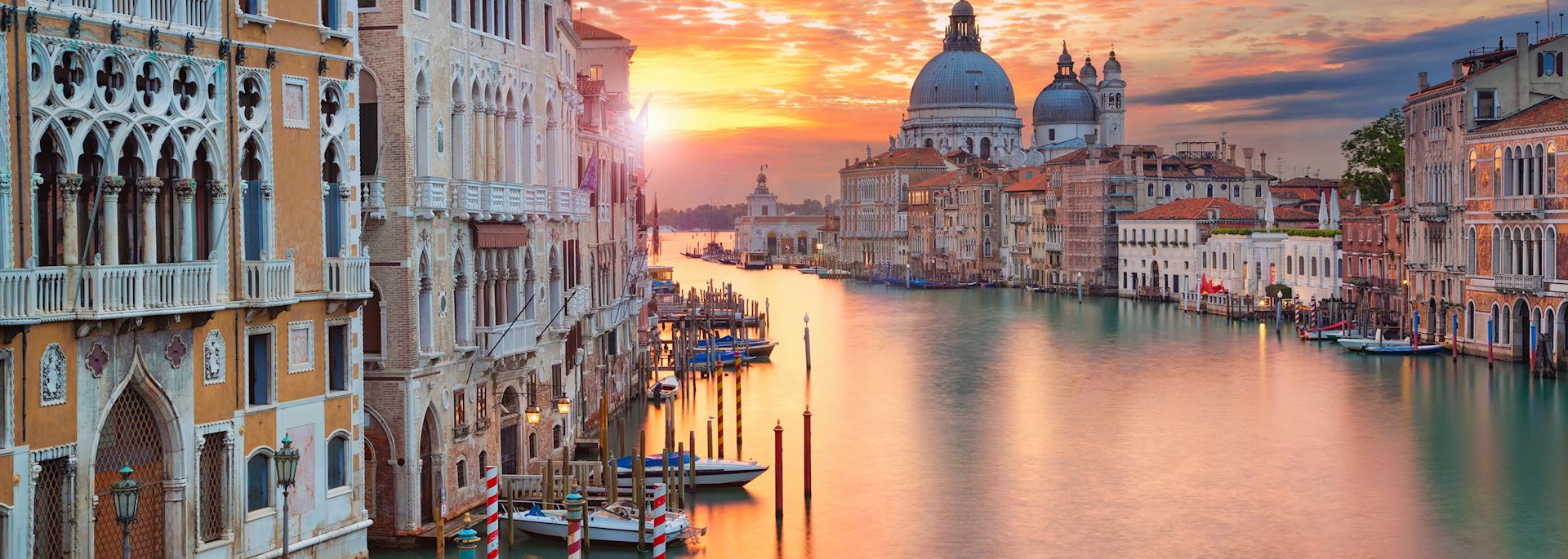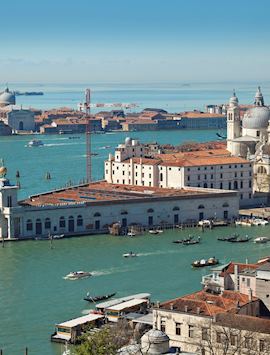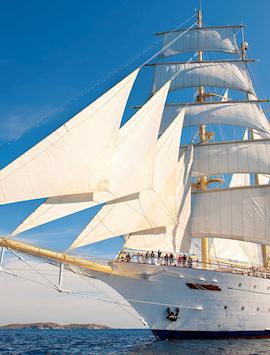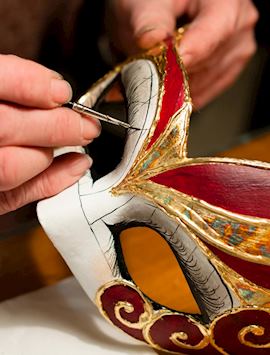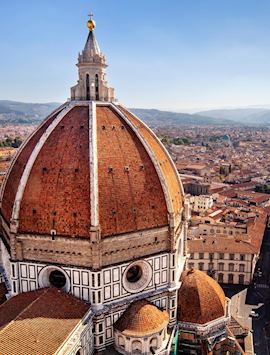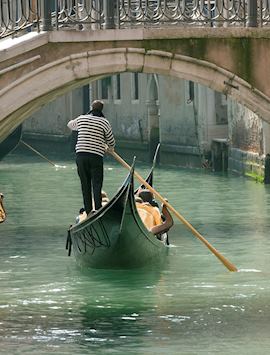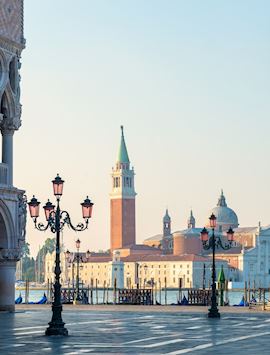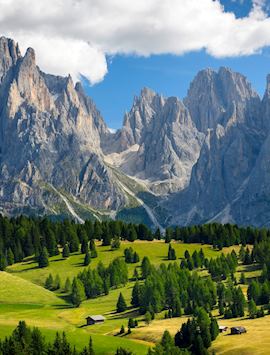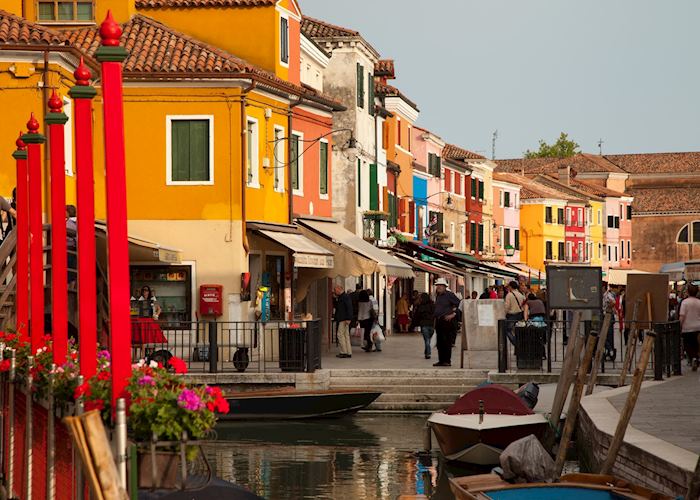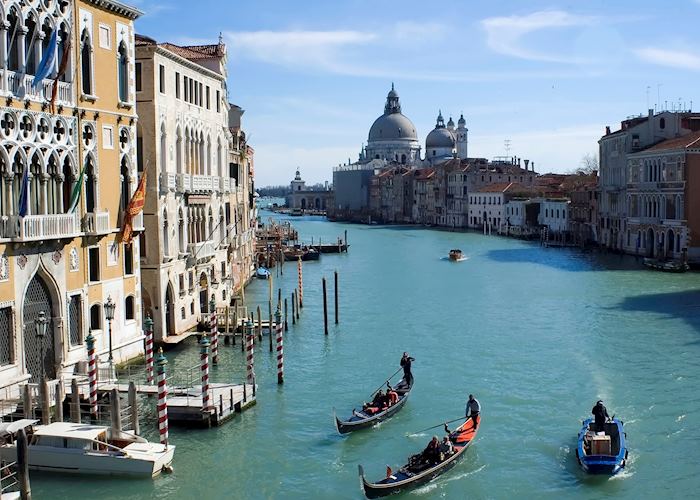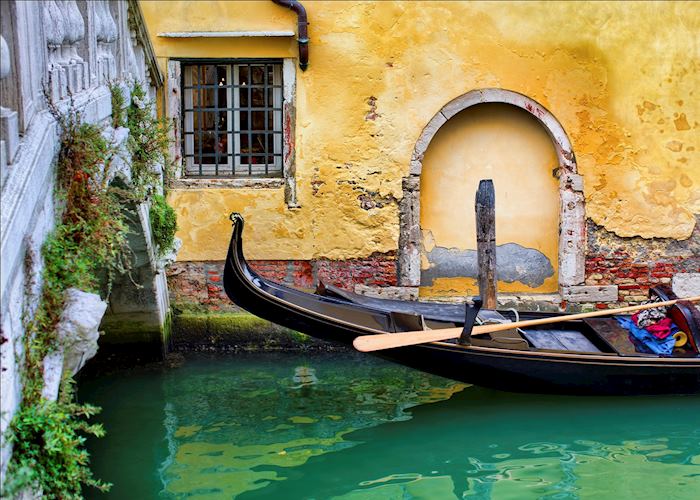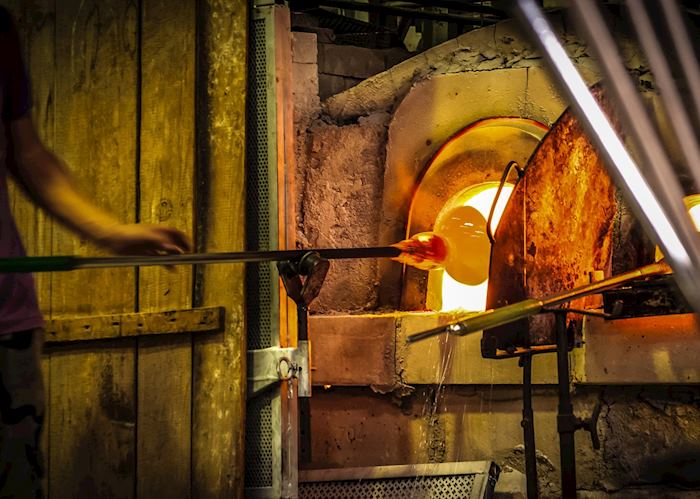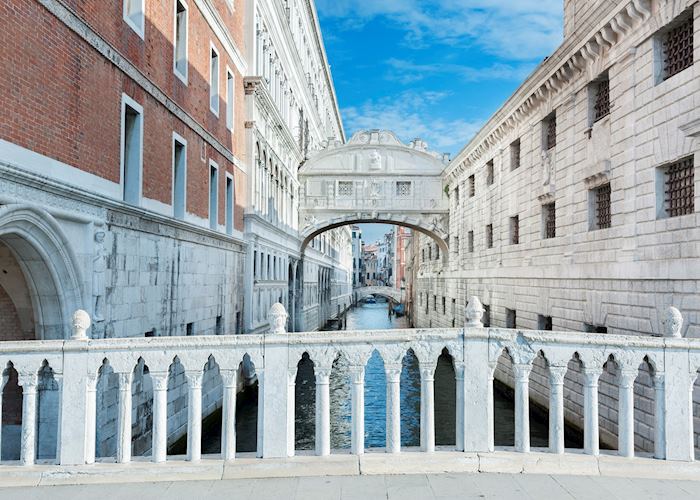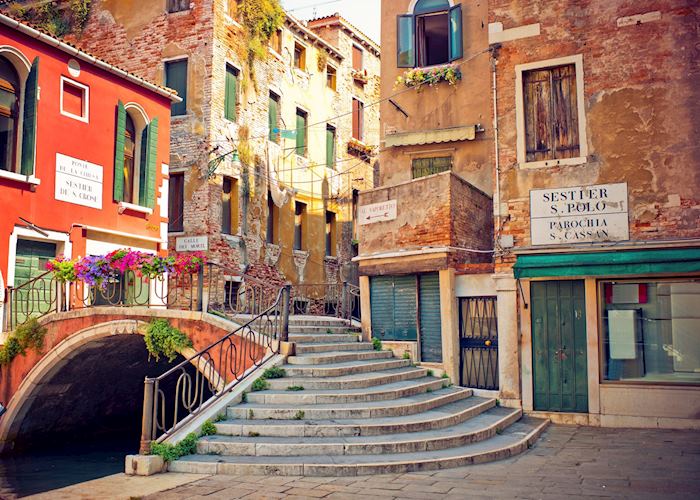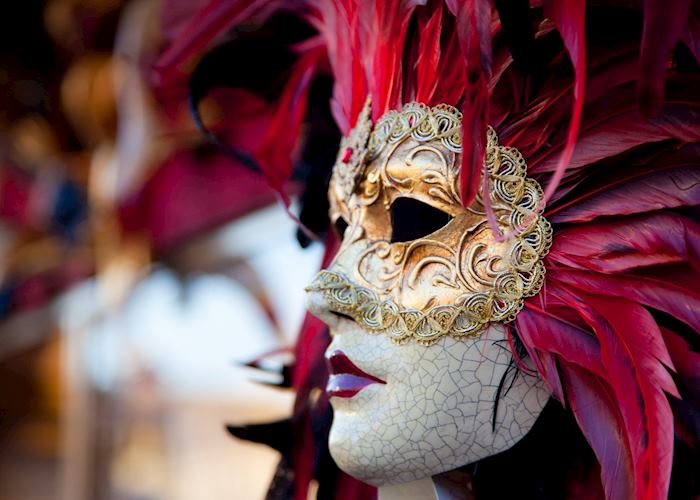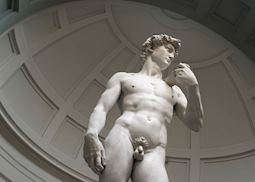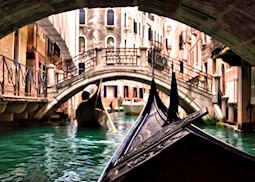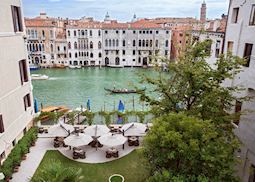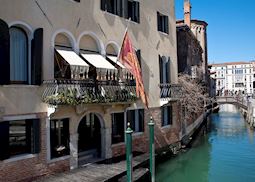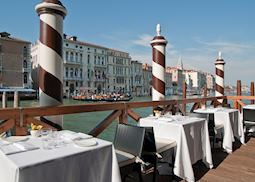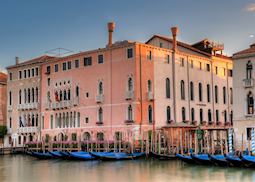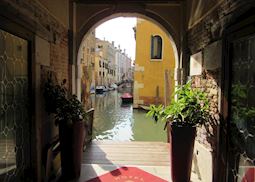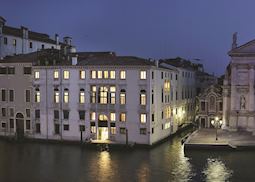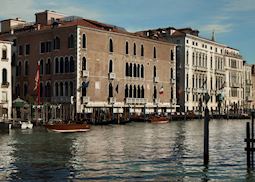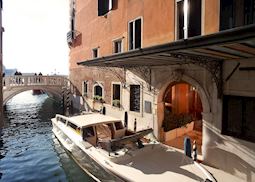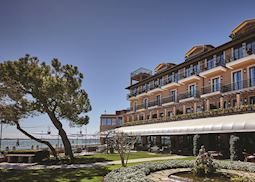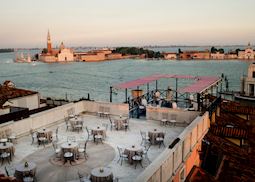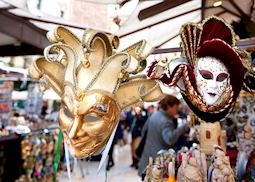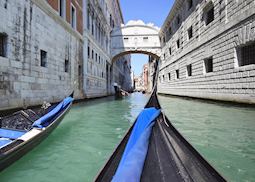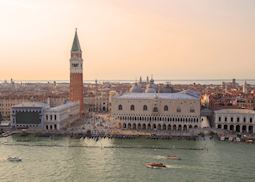Jump to:
Once a powerful and commanding Republic, Venice is one of the most celebrated cities in Italy. Built on 118 small islands linked by canals and bridges, it remains largely as it would have looked in medieval times. Now protected as a UNESCO World Heritage Site, its pivotal place in Italy’s past and present makes it an attractive destination for historians, art lovers, chefs and romantics of all ages. From its ostentatious churches and palaces housing medieval masterpieces to tiny backstreet chapels that are home to priceless artworks, it’s a city of high culture known for its pioneering ideas and healthy disregard for convention.
Italy specialist ShannonOther cities have canals, but there’s nowhere quite like Venice. For the bigger picture, you need to venture beyond the busy central areas, exploring the city’s northern and eastern districts, and the marshy lagoon islands.
Things to see and do in Venice
St Mark’s Square and Basilica
San Marco is the historic core of Venice and at its heart is Piazza San Marco, or St Mark’s Square, the focal point of this striking city. Surrounded by imperial apartments and some of Venice's oldest cafés, it’s dominated by an imposing basilica dedicated to Saint Mark who, as the legend goes, was destined to rest here by divine prophecy. So, when the city's patron saint died in Alexandria in 828, Venetian authorities set about secretly bringing him home.
Today, the basilica is one of the grandest in Italy, awash with gilded mosaics and showcasing some exceptional Romanesque architecture.
The Doge’s Palace
Seat of the Venetian government and official home of the Doge, this remarkable Gothic palace lay at the very heart of the city's political, judiciary and administrative life. The intricate exterior with its geometrical patterns and marble colonnades has been described as Islamicized Gothic, whereas the internal courts and apartments are much more traditionally Venetian in style. Extravagantly decorated with ornate fireplaces, gilded stuccowork and lavish artwork by Tintoretto, Tiepolo and Veronese, the chambers are an exuberant proclamation of the power and ambition of the Venetian Republic. The palace was also home to the city's prisons, linked to the main building by the historic Bridge of Sighs.
Murano Island and glass-blowing experience
Glass has been made on Murano since the 13th century, when the city's glassmakers retreated to the island to mitigate the risk of fire to the main city and to better protect the valuable secrets of their art. The glass made here is prized across the world for its high quality and incredibly intricate patterns, made from mixing minute portions of glass. We can arrange for you to take a factory tour to see the glass blowers at work or visit the Museo del Vetro to learn about the long history of glassmaking on the island.
Burano Island
Winding lanes of brightly painted houses line the canals in the fishing village of Burano set on an outlying island just a 15-minute boat ride beyond Murano. It's a delightful place to explore and makes an excellent day trip from the city.
The island is known for the ancient art of lace making. Artisans here have long boasted their own intricate style, which produces highly detailed and elaborate pieces so fine and valuable that they are always framed rather than worn. Today, however, lace making here is a dying art with just a handful of women with the skills to painstakingly produce the traditional designs that made the island celebrated.
Venice Carnival
During the ten days running up to the beginning of Lent, Venice comes alive in the most spectacular fashion with its annual carnival. The carnival dates back to the 11th century but reached its heyday in the 18th century, when festivities were known to last over two months. Under the cover of their disguises, rich and poor were able to engage in illicit liaisons and social transgressions in a great celebration of excess.
Today, the carnival's balls, music and pageants are just as exuberant and you'll encounter masked merrymakers, bedecked head to toe in elaborate costumes, thronging the streets and creating a celebratory atmosphere.
Take to the canals
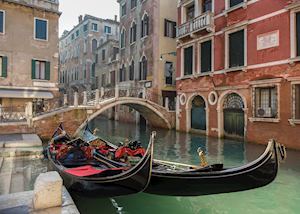 Designed in the 16th century specifically for navigating the narrow Venetian waterways, the gondola is Venice's most romantic mode of transport. A trip along the canals by gondola is a quintessential Venice experience. Your gondolier takes you down a number of scenic canals, so you can see some of Venice’s hidden waterways before you venture out onto the Grand Canal.
Designed in the 16th century specifically for navigating the narrow Venetian waterways, the gondola is Venice's most romantic mode of transport. A trip along the canals by gondola is a quintessential Venice experience. Your gondolier takes you down a number of scenic canals, so you can see some of Venice’s hidden waterways before you venture out onto the Grand Canal.
For a more hands-on approach to the city’s watery culture — known as cultura acquea locally — we can arrange a rowing lesson for you to learn the specific Venetian style of rowing. Gondoliers developed this technique, where the rower stands up and faces forward, but it’s become a signature of the city.
If you prefer a more modern boat, consider a private kayak tour of the canals. You’ll still get to enjoy the water-side views, but in a smaller, more agile vessel.
Rialto Bridge and Market
With its curved arches and grand central portico, the Rialto Bridge is one of Venice's best-known sights. Until the 1850s, it was the only bridge crossing the Grand Canal, making it an important commercial hub and a vital thoroughfare linking the San Marco and San Polo districts.
The bridge, which is lined with shops, leads to the Rialto Market, where traders have plied their wares since 1097. While at first glance, the Rialto can appear one of the touristy areas of Venice, step off the busier streets and you'll find some of the city’s most authentic bacari (wine bars).
The ghetto
At first glance, Venice’s Jewish ghetto is an anticlimax. The Campo del Ghetto Nuovo, the oldest section, looks like little more than a desolate square with a wellhead and a few lonely trees. The space is hemmed in by high, shuttered buildings (in such a confined space, the inhabitants had no choice but to build vertically) and the odd shop selling Hanukkah lamps.
Around the corner you’ll find kosher shops, a library and a bakery, but to really unlock the area’s secrets, you need to take a tour with a local Jewish guide. They’ll be able to take you behind the buildings’ impassive façades to reveal their secrets: the ornately decorated, candlelit synagogues concealed inside.
Incidentally, Venice’s ghetto is believed to be the oldest in the world and the originator of the word ghetto, which means foundry in Italian. A foundry once occupied the site where Venice’s Jews were first segregated in 1516.
La Fenice
Appropriately named ‘The Phoenix’, Venice’s opera house has bounced back from three fires in its canalside location just west of St Mark’s Square. A classical-style building dating from 1792, the city’s oldest opera venue came into its own during the 19th century when great Italian composers such as Verdi and Rossini premiered their latest works here (including La Traviata).
During the Austrian occupation, La Fenice witnessed fervent displays of patriotism. Audience members showered the stage with red, white and green flowers, shouting ‘Viva Verdi’ — the composer’s name being an acronym for Vittorio Emanuele Re d’Italia (Vittorio Emanuele King of Italy). Today, La Fenice hosts opera, ballet and classical music concerts.
Venice’s art galleries
The Accademia is a gallery occupying three former religious buildings and overlooking the Grand Canal in the southern Dorsoduro district. It houses Venice’s largest collection of art. The bulk of the works were gathered together by Napoleon in 1807, who’d confiscated art from churches and monasteries (though it’s said he kept the best works for himself). Its maze of galleries contains Byzantine, Renaissance and Baroque masterpieces, including Tintoretto’s Stealing of Saint Mark. We recommend you visit with a guide, as signage and captioning is poor.
Farther south in Dorsoduro, in a quiet residential quarter, is the Peggy Guggenheim Collection. Its leafy, shaded sculpture garden and light-filled rooms full of bold modern art can make for a pleasant contrast to viewing pieces in Venice’s dimly lit churches. Here you’ll find pieces by Max Ernst (heiress Guggenheim’s second husband), Picasso, Magritte, Kandinsky, Miró and Pollock. There’s also Marini’s provocative Angel of the City, a sculpture of a well-endowed figure seated on a horse and looking out to the Grand Canal.
To the north, in the San Polo sestiere (district), you’ll find the Scuola Grande di San Rocco, a charitable institution that commissioned Tintoretto to create its frescoes. The result is a vast, dramatic cycle of paintings, the most moving of which is the Crucifixion (1562), praised by Henry James for containing more ‘human life’ than any other picture.
Nearby, you’ll find the Frari, a cavernous Gothic church best-known for its altarpiece, Titian’s Assumption of the Virgin. It’s a painting that seems even taller and more luminous when viewed in real life. You can view both buildings, and their art, on a guided secret walking tour.
Finally, there’s Ca’Rezzonico, a Baroque palace on the Grand Canal. Not strictly an art gallery, it immaculately preserves the 18th-century golden age of Venetian living. Its rooms include a restored ballroom and they contain gilded chandeliers, 18th-century frescoes, paintings and, more unusually, puppets.
who's been there
-
01993 838 92501993 838 960
- Make an enquiry
Suggested itineraries featuring Venice
Our itineraries will give you suggestions for what is possible when you travel in Venice, and they showcase routes we know work particularly well. Treat them as inspiration, because your trip will be created uniquely by one of our specialists.
Places near Venice
- Verona 66 miles away
- Ravenna 71 miles away
- Dolomites 72 miles away
- Bologna 81 miles away
- Alta Badia 82 miles away
- Lake Garda 84 miles away
- Sirmione 84 miles away
- Gardone Riviera 87 miles away
- Modena 88 miles away
- Madonna di Campiglio 91 miles away
- Parma 108 miles away
- Florence 128 miles away
- Forte dei Marmi 148 miles away
- San Gimignano 151 miles away
- Pisa 153 miles away
- Milan 153 miles away
- Bellagio 154 miles away
- Lake Como 154 miles away
- Siena 155 miles away
- Lezzeno 156 miles away
- Porto Venere 156 miles away
- Cinque Terre 157 miles away
- Tremezzo 157 miles away
- Laglio 158 miles away
- Torno 159 miles away
- Blevio 159 miles away
- Como 160 miles away
- Perugia 161 miles away
- Assisi 165 miles away
- Umbria 172 miles away
- Portofino and Santa Margherita 173 miles away
- Lake Maggiore 180 miles away
- Genoa 181 miles away
- Verbania 186 miles away
- Stresa 187 miles away
- Orvieto 189 miles away
- Barbaresco 214 miles away
- Alba 216 miles away
- Barolo 223 miles away
- Piedmont 227 miles away
- Turin 228 miles away
- Rome 246 miles away
Photos of Venice
Our expert guides to exploring Venice
Written by our specialists from their own experiences of visiting Venice, these guides will help you make the most of your time there. We share both our practical recommendations and the best ways to appreciate Venice at its best.
-
Secret canals & corners of Venice ![Gondolas, Venice]()
Secret canals & corners of Venice
Secret canals & corners of Venice
Italy specialist Kimberly describes how to get off the beaten track in Venice and discover some of the city’s lesser-visited highlights. These include Venice’s lagoon islands, Castello, Cannaregio and Torcello and taking in the sights and sounds along the Zattere.
Read this guide -
Italy’s art cities: Venice, Florence and Rome ![Michelangelo's 'David', Florence]()
Italy’s art cities: Venice, Florence and Rome
Italy’s art cities: Venice, Florence and Rome
From classical Roman statues through Renaissance frescoes to modern installations, you can trace a complete history of Western art in Italy’s great cities. Specialist Kimberly talks about how to deal with the crowds as you take in these important works.
Read this guide -
Food highlights of Italy ![Italian market produce]()
Food highlights of Italy
Food highlights of Italy
Italy specialist Caroline talks about her love of Italian food in this guide, focusing on the more renowned culinary cities and regions. She also talks about her experiences of creating pasta, catching fresh fish for dinner in Sorrento, wine tasting in Tuscany's Chianti region and where to eat like a local.
Read this guide -
Honeymoons in Italy ![Gondola ride, Venice]()
Honeymoons in Italy
Honeymoons in Italy
Having got married in Tuscany, specialist Eva outlines some of the best honeymoon options across Italy. Would you and your spouse-to-be prefer pampering on the Amalfi Coast or living la dolce vita in Venice, Rome and Florence?
Read this guide
Accommodation choices for Venice
We've selected a range of accommodation options for when you visit Venice. Our choices usually come recommended for their character, facilities and service or location. Our specialists always aim to suggest properties that match your preferences.
-
![Exterior, Londra Palace Venezia]()
Hotel Londra Palace
Venice -
![Aman Venice, Venice]()
Aman Venice
Venice -
![Ca' Maria Adele, Venice]()
Ca Maria Adele
Venice -
![Restaurant terrace, Centurion Palace, Venice]()
Centurion Palace
Venice -
![Ca' Sagredo Hotel, Venice]()
Ca' Sagredo Hotel
Venice -
![Water entrance at the Hotel Ca' D'Oro, Venice]()
Hotel Ca' D'Oro
Venice -
![Hotel Palazzo Giovanelli, Venice]()
Hotel Palazzo Giovanelli
Venice -
![Grand Canal Entrance, Gritti Palace, Venice]()
The Gritti Palace
Venice -
![Private water entrance, Hotel Danieli, Venice]()
Hotel Danieli
Venice -
![Belmond Hotel Cipriani, Venice]()
Belmond Hotel Cipriani
Venice -
![Settimo Cielo breakfast terrace, Bauer Palazzo, Venice]()
Bauer Il Palazzo
Venice -
![Bar Car 3674, Venice Simplon-Orient-Express]()
-
![Hotel L'Orologio Venezia, Venice]()
Hotel l’Orologio Venice
Venice
Ideas for experiencing Venice
Our specialists seek out authentic ways to get to know the places that could feature in your trip. These activities reflect some of the experiences they've most enjoyed while visiting Venice, and which use the best local guides.
-
Mask making experience, Venice ![Carnival Masks in Street Market, Verona]()
Mask making experience, Venice
Mask making experience, Venice
Learn about the history of Venice’s vibrant and elaborate masks and try your hand at making your own with materials such as brocade edging and bright acrylic paints.
View details -
Panoramic boat tour of Venice ![Palace canal and Bridge of Sighs, Venice]()
Panoramic boat tour of Venice
Panoramic boat tour of Venice
Travel along the waterways of Venice by boat, viewing the city from the water on this two-hour tour. You’ll see the different areas of the city and will even have the opportunity to view the lagoons and outlying islands.
View details -
St Mark's Square & Doge's Palace secret histories tour ![View of St Mark's and the Doge's Palace, Venice]()
St Mark's Square & Doge's Palace secret histories tour
St Mark's Square & Doge's Palace secret histories tour
This half day tour takes you to the iconic Doge’s Palace, St Mark’s Square, and St Mark's Basilica. You will also have the opportunity to see some hidden areas of the Doge’s Palace not always open to the public.
View details

